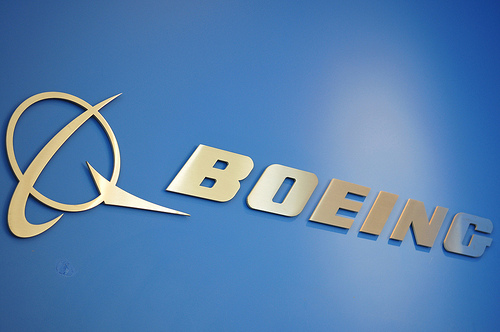 When Boeing announced in 2009 that it would invest $750 million in a new South Carolina production plant to build the 787 Dreamliner, the airplane giant said it needed to cut down on costs being driven up by unions. After years of battling with machinists unions, Boeing moved to non-unionized South Carolina where workers’ benefits and pay are much lower. In South Carolina, for example, Boeing pays plant workers $15 per hour, almost 50 percent less than what Washington assembly line workers earn.
When Boeing announced in 2009 that it would invest $750 million in a new South Carolina production plant to build the 787 Dreamliner, the airplane giant said it needed to cut down on costs being driven up by unions. After years of battling with machinists unions, Boeing moved to non-unionized South Carolina where workers’ benefits and pay are much lower. In South Carolina, for example, Boeing pays plant workers $15 per hour, almost 50 percent less than what Washington assembly line workers earn.
Privately, however, this was never the case. In an internal memo that later became the basis for a complaint to the National Labor Relations Board, Boeing bigwigs admitted that not only would the move cost them money, but “the only consistent advantage attributed to Charleston was the ability to ‘leverage’ the site placement decision toward ‘rebalancing an unbalanced and uncompetitive labor relationship.’”
But years later, Boeing is seeing another consequence to its costly move out of Washington – a less productive labor force. According to the Puget Sound Business Journal:
“Boeing’s South Carolina facility is running behind projections and won’t make its goal of producing three 787 Dreamliners a month by the end of 2013. In fact, the Everett plant will have to make up the difference in order for the company to reach its overall goal of 10 jetliners a month by year’s end.”
Washington’s Boeing machinists and assembly line workers are some of the best in the world because our state has the infrastructure to support their training, certification and long-term employment. The skills, awareness and experience from years of work in the industry are held partly by individual workers, but also in a local network of relationships, trust and everyday interactions in the workplace. This is clear to workers and managers close to the factory, but less so to executives in offices 2,000 miles away. Washington’s competitive edge in aerospace has even led Airbus, Boeing’s major global competitor, to consider opening a Washington engineering center.
Allan McArtor, chairman of Airbus Americas stated at the 2013 Paris Air Show, “We are attracted to Washington state for the same reason we were attracted to Wichita. That’s where the talent is. If you want to have access to the talent that developed over the last 100 years of aviation, Washington is very fertile ground.”
Put simply, we know how to do aerospace in Washington and we do it well. Aerospace unions are a central part of that. Maybe, just maybe, Boeing will realize now that union-busting isn’t just bad for their workers’ bottom lines, but their own as well.
By EOI Intern Bill Dow
More To Read
March 24, 2025
Remembering former Washington State House Speaker Frank Chopp
Rep. Chopp was Washington state’s longest-serving Speaker of the House
February 11, 2025
The rising cost of health care is unsustainable and out of control
We have solutions that put people over profits
January 29, 2025
Who is left out of the Paid Family and Medical Leave Act?
Strengthening job protections gives all workers time they need to care for themselves and their families
